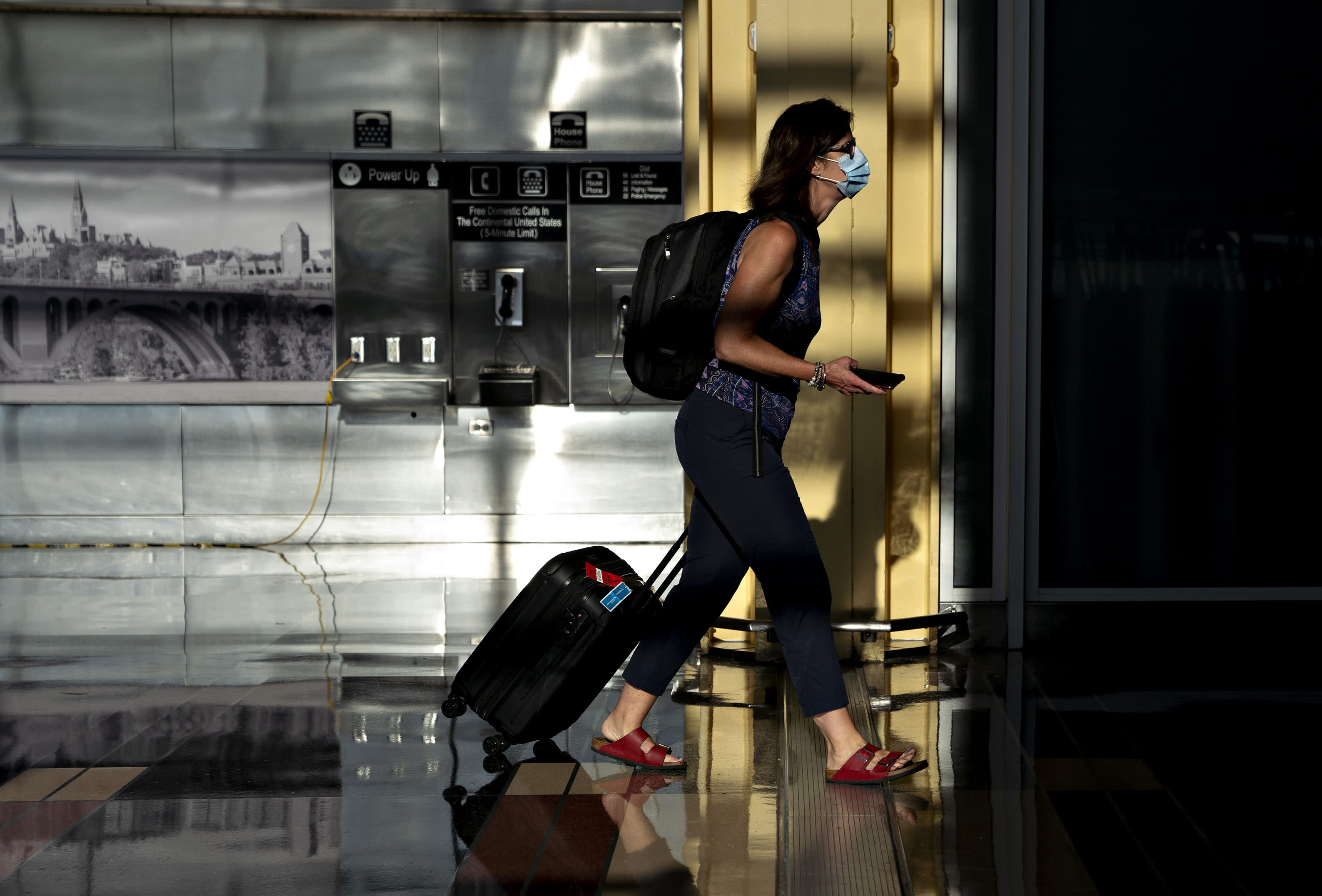A traveler wearing a protective mask walks through Ronald Reagan National Airport (DCA) in Arlington, Virginia, U.S., on Tuesday, June 9, 2020.
Andrew Harrer | Bloomberg | Getty Images
Checking temperatures at airports might not be the best way to weed out travelers with Covid-19, the head of the Transportation Security Administration said Tuesday.
TSA and other industry officials urged all travelers to wear masks throughout the airport and on board, but the federal government hasn’t yet made a decision on temperature checks for passengers.
“No decision has been made,” TSA Administrator David Pekoske said on a call with reporters.
“I know in talking to our medical professionals and talking to the Centers for Disease Control is that temperature checks are not a guarantee that passengers who don’t have an elevated temperature also don’t have Covid-19,” Pekoske said. The reverse may also be true, where travelers could have temperatures but not Covid-19.
Other issues are is what to do with travelers who have elevated temperatures and which government agency would oversee the screenings, he said. Regulators would also have to figure out where to have such screening, ideally at entrances of large public spaces, like departure halls.
“But as we all know, there are other opportunities for people to come in closer contact with other passengers,” Pekoske said, using a airport’s rental car site as an example.
The aviation industry is grappling with how to keep travelers and employees safe in the pandemic, and ensure that customers feel comfortable flying again. U.S. airlines now require that travelers wear masks on board and have threatened to deny them flights if they don’t comply.
Demand has rebounded from more than five-decade lows hit in April as the traditional peak summer travel season gets underway but it remains far below recent levels.
An average of around 482,000 travelers a day passed through U.S. airport checkpoints in June through Monday, more than 80% fewer than the same period of 2019, according to federal data.
